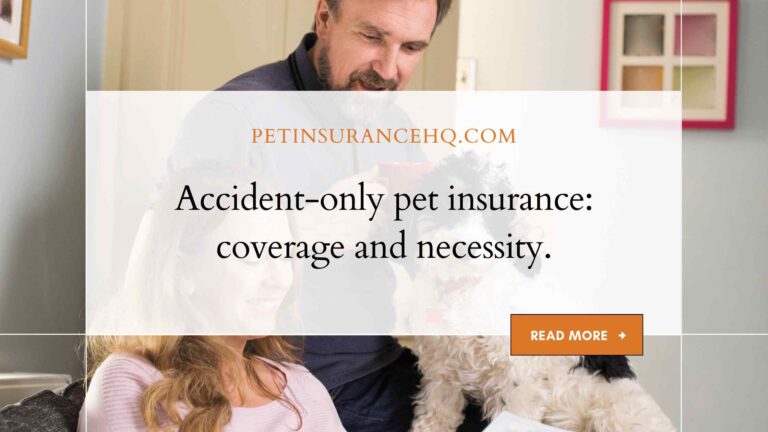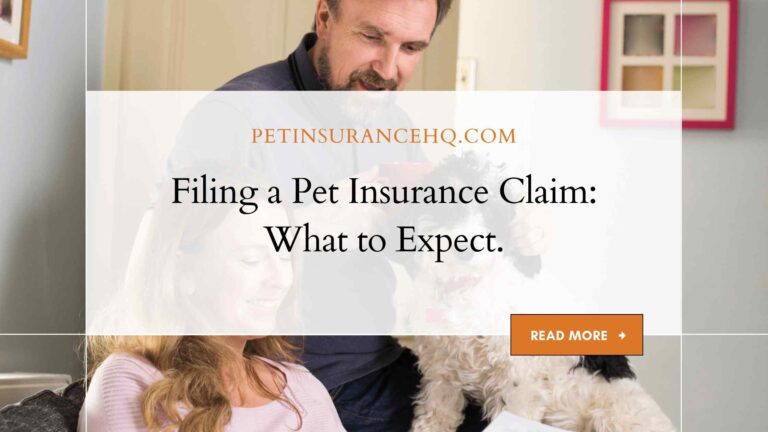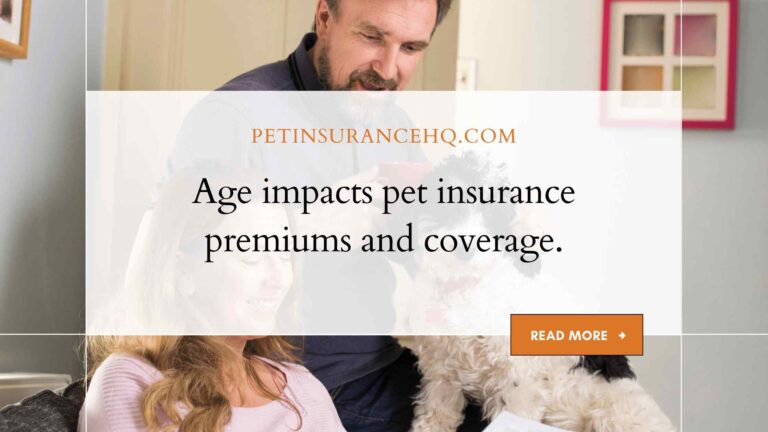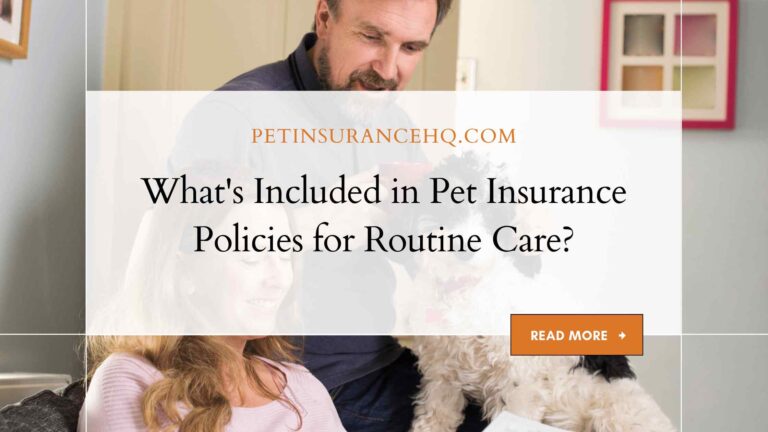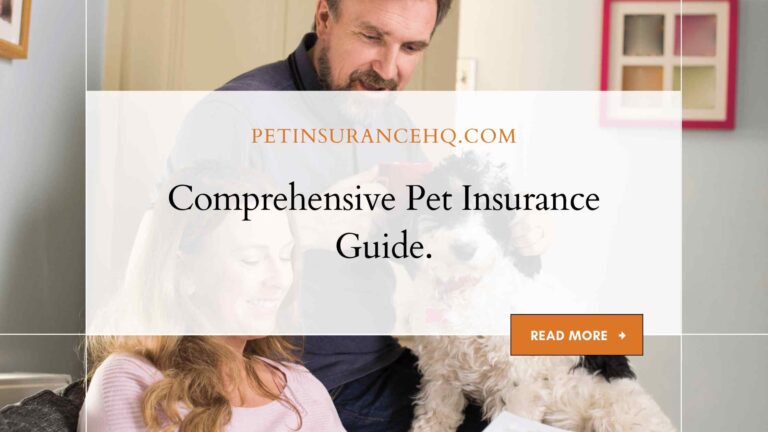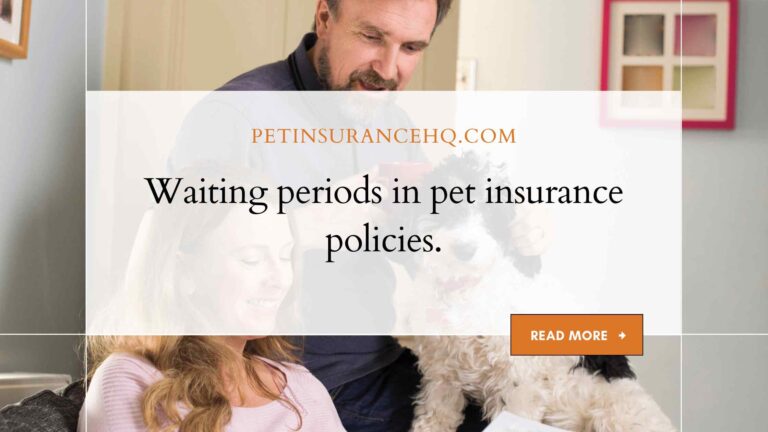How to Find the Best Pet Insurance Rates for Your Budget
As pet owners, we want the best for our furry friends. But as much as we’d love to keep them healthy and happy forever, unexpected accidents or illnesses can happen at any time. That’s where pet insurance comes in – it provides peace of mind knowing that you won’t have to worry about hefty vet bills if something goes wrong. However, finding affordable rates that fit your budget can be a challenge.
Fear not! In this blog post, we’ve got some tips and tricks on how to find the best pet insurance rates without compromising on coverage – so both you and your beloved pets can rest easy.
Introduction to Pet Insurance
Assuming you want a cost-effective pet insurance policy, here are some tips:
- Do your research : When it comes to pet insurance, there are a lot of options out there. So, it’s important to do your research and find an insurer that meets your needs and budget.
- Consider your pet’s needs : Not all pets are the same, so not all policies will be right for every pet. Consider your pet’s individual needs when shopping for insurance.
- Get quotes from multiple insurers : Don’t just go with the first pet insurance company you find. Get quotes from multiple insurers to compare rates and coverage options.
- Read the fine print : Be sure to read the fine print of any policy before you sign on the dotted line. This way, you’ll know exactly what’s covered (and what isn’t).
Factors That Affect Pet Insurance Rates
There are a few things that you as a pet owner can do to make sure you are getting the best insurance rates for your budget. The first is to be aware of the factors that affect pet insurance rates. These include:

- The type of pet you have: Some breeds of dogs and cats are more expensive to insure than others. For example, purebreds or designer dogs like Yorkies or Bulldogs typically cost more to insure than mixed breeds. This is because they are more prone to genetic health conditions that can be expensive to treat.
- Your pet’s age: Puppies and kittens tend to be cheaper to insure than older animals since they are not as likely to develop serious health problems. However, once your pet reaches middle age, rates will start to go up again as they become more susceptible to age-related issues such as arthritis and cancer.
- Your location: Where you live can also affect your pet insurance rates. If you live in an urban area, for example, your rates will likely be higher than if you resided in a rural area since there is a greater risk of your pet being injured or becoming ill (from things like exposure to toxins or other animals).
- Your coverage needs: The amount of coverage you need will also affect your premiums. If you want comprehensive coverage that includes things like dental care and preventive care, you can expect to pay more than if you choose a basic plan with only accident and illness protection.
Keep in mind that pet insurance rates can vary from company to company, so it’s important to shop around and compare quotes from different providers to get the best deal.
Evaluating Pet Insurance Plans
There are a few things you’ll want to keep in mind when evaluating pet insurance plans:
- Make sure the plan covers the types of veterinary care your pet is likely to need. Some plans only cover preventive care, while others will cover both preventive and sick/injured care.
- Find out how much the plan pays per incident or per visit. The amount can vary greatly between plans, so you’ll want to make sure you’re getting a good value.
- Check to see if there is a limit on how much the plan will pay out over the course of your pet’s lifetime. Some plans have no limit, while others may only pay out up to $10,000 or $15,000.
- Make sure you understand what kinds of things are not covered by the plan. Pre-existing conditions, for example, are often not covered by pet insurance plans.
- Read the fine print carefully before signing up for any plan! This is important so that you know what you’re actually getting and aren’t surprised by any exclusions or limitations later on down the road.
Types of Pet Insurance Coverage Available
There are several types of pet insurance coverage available to choose from, and the best type of coverage for your pet will depend on your individual needs and budget. Some of the most common types of pet insurance coverage include:
- Accident only: This type of coverage will pay for veterinary bills resulting from an accident, but will not cover illnesses or preventive care.
- Comprehensive: Comprehensive pet insurance plans cover both accidents and illnesses, as well as preventive care. These plans typically have higher monthly premiums, but can save you money in the long run if your pet has any health issues.
- Lifetime: Lifetime pet insurance plans provide coverage for the lifetime of your pet, regardless of how many times you need to make claims. These plans usually have high monthly premiums, but can give you peace of mind knowing that your pet is covered no matter what happens.
How to Choose the Right Plan for Your Pet
There are a few things to consider when choosing the right pet insurance plan for your budget.
First, you need to decide what type of coverage you need. There are three main types of pet insurance: accident only, comprehensive, and preventive care. Accident only plans cover unexpected accidents like ingesting poison or being hit by a car. Comprehensive plans cover both accidents and illnesses. Preventive care plans help pay for routine vet visits and vaccinations.
Second, consider what deductibles and co-pays you are comfortable with. Most pet insurance policies have a deductible that you must pay before the policy kicks in. Co-pays are the percentage of the bill that you must pay after the deductible is met. The higher the deducible and co-pay, the lower your monthly premium will be.
Third, get quotes from several pet insurance companies and compare their rates. Make sure to read the fine print so you understand what is and is not covered under each policy.
By following these steps, you can find the best pet insurance policy for your budget and needs.
Keys to Finding the Best Deal on Pet Insurance
- Comparison shop – When it comes to finding the best deal on pet insurance, it pays to comparison shop. There are a number of websites that allow you to compare quotes from different insurers, so be sure to take advantage of them.
- Consider your deductible – Your deductible is the amount you have to pay out-of-pocket before your insurance policy kicks in. The higher your deductible, the lower your premiums will be. However, you need to make sure you can afford the deductible if you ever need to make a claim.
- Know what’s covered – Make sure you understand what exactly your pet insurance policy covers. Some policies will cover routine care such as vaccinations and check-ups, while others only cover accidents and illnesses.
- Read the fine print – Before buying any pet insurance policy, be sure to read the fine print carefully. This way you’ll know exactly what’s covered and what’s not.
- Get quotes from multiple companies – As with any type of insurance, it’s a good idea to get quotes from multiple companies before making a decision. This way you can be sure you’re getting the best deal possible on pet insurance.
Tips for Reducing Your Premiums
- Consider your pet’s needs and choose a policy accordingly – not all policies are created equal.
- Shop around and compare rates from different insurers – don’t just go with the first company you find.
- Pay attention to policy details and coverage limits – make sure you understand what you’re buying.
- Check for discounts – many insurers offer discounts for things like multi-pet households, spaying/neutering, and more.
- Be prepared to pay more if your pet is older or has preexisting conditions – this is unfortunately common in the pet insurance world.
Conclusion
Shopping for pet insurance can be an overwhelming task, but with the right information and a few helpful tips, you can find the best rates to fit your budget. Make sure to consider all of your options when selecting a plan and make sure that you have enough coverage for unexpected events. Don’t forget to ask about any discounts or specials that may be available as these can save you money down the road. Finally, remember that having peace of mind is priceless when it comes to caring for your beloved pet!


